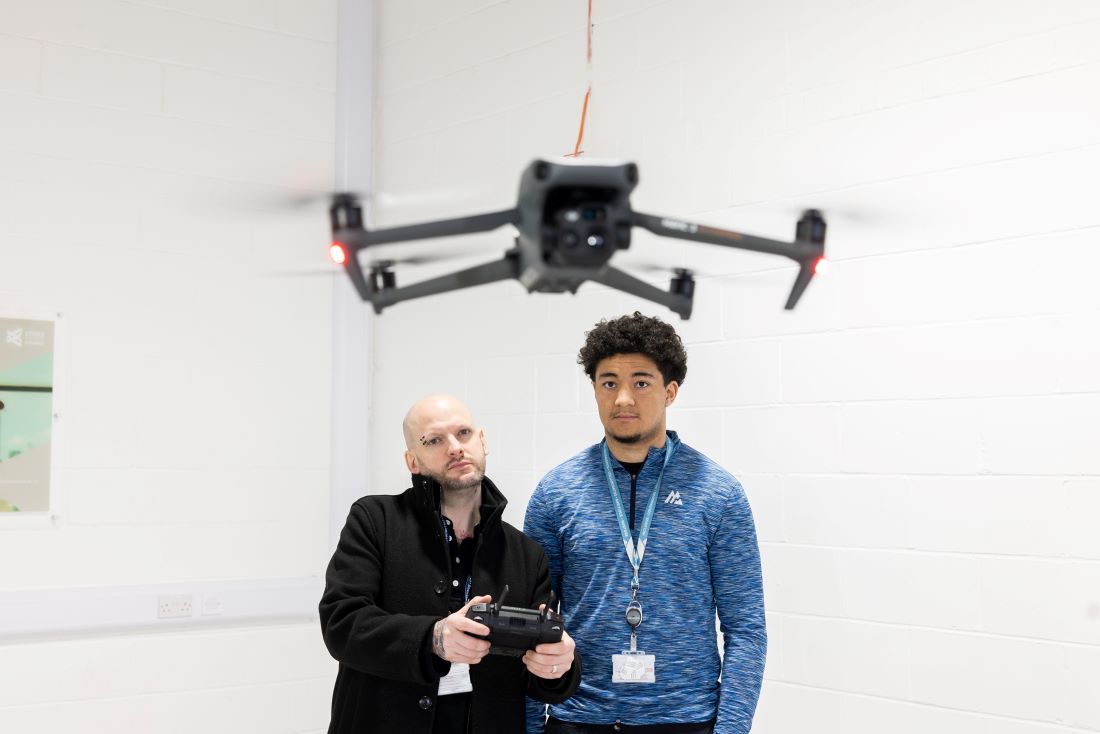Rob Halfon’s Three Priorities For Good Careers Guidance

In this article, Skills Minister Rob Halfon emphasises the importance of careers guidance in empowering individuals and building a skilled workforce. He discusses the importance of starting early in schools, building a coherent careers system, raising awareness of apprenticeships and T Levels, supporting adults, and promoting green careers.
This National Careers Week, I want to highlight the tremendous boost that good careers advice can give to a person’s future – whatever their stage in life.
My three priorities for good careers guidance are a focus on skills training and work experience; a single, unified careers system; and prioritising social justice
First Priority: The Importance of Careers Advice in Schools
Of course, it’s best to start early. Good careers advice at school forms the first rung of the Ladder of Opportunity, beginning a young person’s journey to good employment.
Schools’ provisions should uphold my first priority to focus on skills training and work experience.
I am determined that their careers offers should always include these options so that children know there is more than one route to a great career.
That is why we strengthened the provider access legislation, known as the Baker Clause, in the Skills and Post-16 Education Act in 2022. We now stipulate that every school must provide pupils with a minimum of six education and training provider encounters, so they can build their understanding of what technical routes offer.
Second Priority: Building a Coherent Careers System
My second priority has been to lay the foundations of a coherent careers system, with strong collaboration between educators, training providers and employers. Over 95% of schools and colleges are now part of The Careers & Enterprise Company’s Careers Hubs network, working with almost 400 major employers. I’ve met with Sir Martyn Oliver since he was appointed the new Chief Inspector of Ofsted, and he supports this movement to make sure careers education fully educates pupils on all their options.
Raising Awareness of Apprenticeships and T Levels
Part of the battle is raising awareness of what’s on offer so that young people aren’t given a false, binary choice of work or university. Our ASK programme is raising older pupils’ awareness of the benefits of apprenticeships and T Levels. It’s available nationwide but focuses on disadvantaged areas – places where these opportunities could make the most difference. It had 625,000 interactions with young people in over 2,400 schools in 2022/23. It also reached over 45,000 parents and carers – who need to understand the value of apprenticeships and skills as much as their school-age children.
Presenting Academic and Technical Choices Side by Side
As pupils finish school, they must see academic and technical choices side by side, so they can compare courses and consider what would best suit them.
Although it’s primarily known for university admissions, UCAS shares my mission to promote all of the options available to 18-year-olds. Subject searches in the UCAS Hub now display relevant apprenticeships alongside degree courses. Search results show affordability, duration of training or study required, as well as likely career outcomes. From September this year, young people will be able to apply for apprenticeships via the UCAS Hub, making it a comprehensive gateway to post-16 options.
Third Priority: Supporting Adults in Their Career Choices
Careers guidance is key to considering career options in later life. In this dynamic job market, there are lots of employers, in emerging and established industries, that are desperate for people with the right skills training.
A single, unified careers system must successfully support adults as well as young people. It also needs to prioritise social justice – my third priority. This means making sure that the system’s provision reaches those who most need the opportunity to train to improve their job prospects.
The National Careers Service helps people to consider which training could get them to get a new job and a better pay packet. Since it began it has helped more than 1.3 million people gain a new job or learning outcome. It provides free online guidance, but also community-based advisers who support adults with recognised barriers to work, to start or change their careers.
Earlier this week [Monday 4th March] I visited an employability hub in West London to meet National Careers Service advisers and their customers. I found so much enthusiasm for the unique power of good careers advice, which was helping people get on career-boosting courses like Skills Bootcamps and Free Courses for Jobs.
Green Careers: Meeting the Demand for Skilled Candidates
There will be particular demand for skilled candidates to fill green jobs in the coming decades, as the country transitions to Net Zero. The National Careers Service now has a Green Careers page to demonstrate the breadth of roles and skills, across many sectors, that support the environment. I’m delighted that National Careers Week now has a sister event, Green Careers Week in November, to celebrate career routes that are sustainable in every way.
Celebrating and Promoting Careers Guidance
National Careers Week is a time to celebrate great careers guidance. It’s also a good moment for education providers to consider their careers provision – and for anyone to pause and consider their potential.
The government’s new Skills for Life advertising campaign, It All Starts With Skills, is designed to encourage more people to start their skills journey. All the options I’ve mentioned can be accessed through the Skills for Careers website, which provides a single starting point for information about skills, training and careers. Anyone looking to upskill or change careers can browse all their skills and technical options in one place. It’s designed to inspire anyone who’s looking for a change or new direction, helping them build their foundation for a great, new career.
By Robert Halfon, Minister for Skills, Apprenticeships and Higher Education
FE News on the go
Welcome to FE News on the Go, the podcast that delivers exclusive articles from the world of further education straight to your ears.
We are experimenting with Artificial Intelligence to make our exclusive articles even more accessible while also automating the process for our team of project managers.
In each episode, our thought leaders and sector influencers will delve into the most pressing issues facing the FE.











Responses